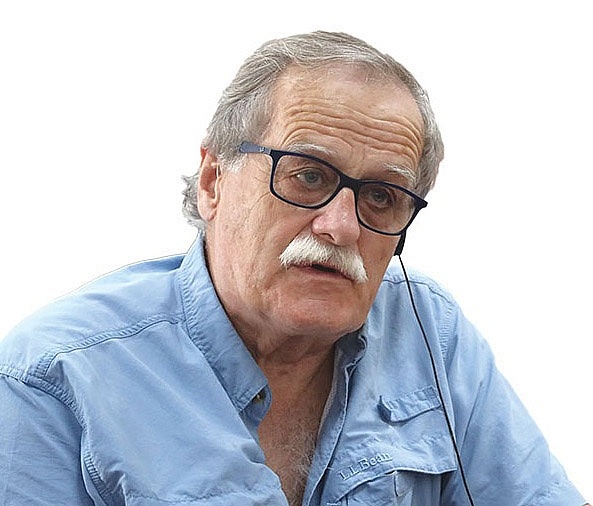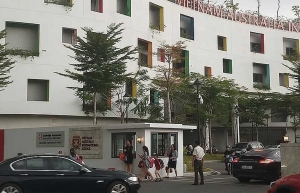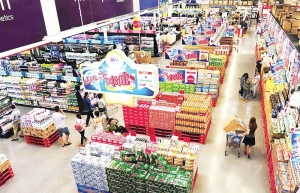Behavioural change still required within food safety
How do you assess the food safety culture in Vietnam?
 |
| Brian G. Bedard, director of Food Safety and Animal Health at Alinea International |
Food safety culture is a reflection of the prevailing, relatively constant, learned, shared attitudes, values, and beliefs contributing to the hygiene behaviours used in handling food whether in a food establishment or at home associated with best practices and personal hygiene. The awareness and attention of everyone involved in the process of food is the key to reducing food safety issues.
The culture in Vietnam is in the initial stages of the progression towards maturity of the food safety management systems at all levels of the value chain that can be reliably certified. Adoption of a food safety culture is contingent upon individual behaviour change which is difficult to achieve and, in some companies, full maturity takes 3-5 years.
In Vietnam, food safety is a major public health issue, despite the increase in productivity and quality of agri-food products. Most of the food is sold through high-risk wholesale markets and local, informal/wet markets, where smallholder farmers may not pay enough attention to on-farm food safety standards, such as pesticide use and clean water.
Consumers in Vietnam do not trust the claims of safe food products without reliable and transparent traceability systems. A strong and trustworthy food safety system needs to have both traceability, transparency, and credible labelling so that consumers can believe and verify that their food is safe.
The government has paid more attention to food safety issues, relating to the food safety law of 2011 and the national strategy on food safety over the past decade or so. The Safe Food for Growth project (SAFEGRO) is the result of a direct request from the government for Canadian assistance to develop and strengthen Vietnam’s food safety.
SAFEGRO with financial support from Global Affair Canada is implemented by Alinea International in partnership with the University of Guelph, and is partnered with the agriculture, industry, and health ministries in Vietnam.
It assists in developing and enforcing scientific and risk-based food safety regulations, while at the same time aiming towards raising consumers’ awareness of food safety, promoting increased demand for safe and affordable agri-food in Vietnam, and advocating gender mainstreaming throughout its programming.
What is Canada’s standing in the world in terms of food safety?
The global food safety index indicates there is a broad range of food safety management around the globe. Canada has been rated by the index as having one of the leading food safety approaches when compared to others.
Canada has adopted an integrated risk-based safety system through which a unified single agency oversees food safety management systems for producers and food business operators, and monitors the preventative efforts to reduce risks.
How is this area improved upon elsewhere around the world?
Other countries have shown that food safety culture can be effectively promoted among food operators in retail and manufacturing using proven methodologies. This approach is also being extended to food safety culture among regulators. However, adopting a food safety culture in food manufacturing can take a long time and require significant investments.
Food safety is not a competitive advantage among the international food industry players, but it can bring benefits to their brand recognition and reduce rejections for meeting international standards and accessing export markets for agri-food businesses that aim to sell abroad.
Many countries that score high on the food safety index use a risk-based preventative approach to reduce food safety hazards at the most critical points. Having a single agency responsible for food safety, instead of multiple agencies or ministries, can also improve efficiency and reduce risks.
A good practice to improve food safety is to have a robust communication strategy, especially for schools and young people, and consumers for food preparation. This strategy should include how to handle and prepare food safely at home, following these steps: separate raw and cooked food, clean utensils and surfaces, cook food thoroughly, chill food promptly, and use clean water.
Within SAFEGRO, we are exploring the critical behavioural changes required to accelerate food safety culture practices in wholesale and retail markets, among cooperatives, and at the farm level.
What are your recommendations for Vietnam?
Food safety culture should be promoted for all businesses and organisations in Vietnam. The country could improve its food safety policy and regulatory framework to better align with international best practices. Priority should be given to developing a code of conduct and practice guidelines for building a food safety culture at all levels.
Consideration should be given to investing in a comprehensive strategy for education, communication, and creating a food safety culture through annual specialised campaigns on education and communication associated with food safety culture.
 | Private education not plagued by food safety violations Food safety violations akin to the one reported at Vietnam Australia International School (VAS) in Ho Chi Minh City are a grave disappointment for parents but do not represent the entire private education system. |
 | PM calls for more positive changes in food safety in 2020 Prime Minister Nguyen Xuan Phuc has called for more positive changes in ensuring food safety in 2020 while chairing a teleconference on food safety on January 11. |
 | Virus rouses food safety awareness Supermarkets and retailers are making bank from the public rushing to stock up on indispensable food supplies, which could ultimately push forward an increase in awareness of food handling and safety. |
What the stars mean:
★ Poor ★ ★ Promising ★★★ Good ★★★★ Very good ★★★★★ Exceptional
Related Contents
Latest News
More News
- State corporations poised to drive 2026 growth (February 03, 2026 | 13:58)
- Why high-tech talent will define Vietnam’s growth (February 02, 2026 | 10:47)
- FMCG resilience amid varying storms (February 02, 2026 | 10:00)
- Customs reforms strengthen business confidence, support trade growth (February 01, 2026 | 08:20)
- Vietnam and US to launch sixth trade negotiation round (January 30, 2026 | 15:19)
- Digital publishing emerges as key growth driver in Vietnam (January 30, 2026 | 10:59)
- EVN signs key contract for Tri An hydropower expansion (January 30, 2026 | 10:57)
- Vietnam to lead trade growth in ASEAN (January 29, 2026 | 15:08)
- Carlsberg Vietnam delivers Lunar New Year support in central region (January 28, 2026 | 17:19)
- TikTok penalised $35,000 in Vietnam for consumer protection violations (January 28, 2026 | 17:15)

 Tag:
Tag:
















 Mobile Version
Mobile Version